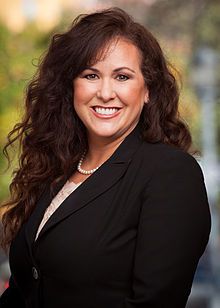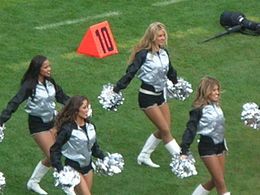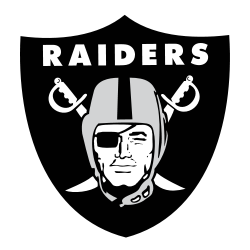Asm. Lorena Gonzalez proposes labor protections for cheerleaders
by John | April 20, 2015 5:00 am
 Legislative committee hearings aren’t known for their heart-pounding excitement. But, you might hear a round of cheers to excite the crowds at this week’s Arts, Entertainment, Sports, Tourism & Internet Media Committee.
Legislative committee hearings aren’t known for their heart-pounding excitement. But, you might hear a round of cheers to excite the crowds at this week’s Arts, Entertainment, Sports, Tourism & Internet Media Committee.
On Tuesday, the committee is scheduled to consider[1] a proposal by Assemblywoman Lorena Gonzalez, D-San Diego, that would provide greater labor protections for professional cheerleaders. Assembly Bill 202, which scored a 5-2 win[2] in the Assembly Committee on Labor and Employment earlier this month, would protect cheerleaders of professional sports teams from workplace abuses by classifying them as employees, not independent contractors.
Specifically, the bill would amend the Labor Code to state that “a cheerleader who is utilized by a California-based professional sports team directly or through a labor contractor during its exhibitions, events, or games, shall be deemed to be an employee.”
Gonzalez: Treat cheerleaders fairly
Gonzalez says that professional cheerleaders are being exploited by multi-billion-dollar professional sports franchises.
“AB202 simply demands that any professional sports team – or their chosen contractor – treat the women on the field with the same dignity and respect that we treat the guy selling beer,” said Gonzalez[3], who was a cheerleader in high school and college. “NFL teams and their billionaire owners have used professional cheerleaders as part of the game day experience for decades.”
She added, “They have capitalized on their talents without providing even the most basic workplace protections like a minimum wage.”
Gonzalez’s legislation, which has the support of the California Employment Lawyers Association, California Labor Federation and Consumer Attorneys of California, comes on the heals of high-profile lawsuits by professional football cheerleaders that allege widespread workplace violations[4]. The allegations include claims that the Cincinnatti Bengals, Buffalo Bills, Tampa Bay Buccaneers, Oakland Raiders and New York Jets failed to pay overtime or even the minimum wage.
Cheerleaders claim NFL teams broke labor laws
Caitlin Yates, one of the former NFL cheerleaders that has filed a lawsuit for labor violations, testified earlier this month before the Assembly Committee on Labor and Employment about her experiences with the Oakland Raiders.
“When I first started working as a Raiderette, I was just happy to make the squad and support my team,” Yates said. “However, over time I realized that the way I was being treated was unfair.”
 Yates claimed that cheerleaders were sexually harassed, forced to pay out-of-pocket for job-related expenses and work with injuries.
Yates claimed that cheerleaders were sexually harassed, forced to pay out-of-pocket for job-related expenses and work with injuries.
“There are some teams out there who don’t treat their cheerleaders as employees or pay their cheerleaders a fair wage,” she told lawmakers. “We are professionals who deserved to be paid fairly no matter what team we play for.”
The issue has been a black eye for the National Football League, which has acted quickly to settle lawsuits and avoid similarly embarrassing testimony. Last September, two former Raiderette cheerleaders reached a $1.25-million settlement over accusations of “failing to pay minimum wage, withholding wages for months and refusing to reimburse cheerleaders for their business expenses,” according to the Los Angeles Times[5]. Earlier this year, the Tampa Bay Buccaneers paid out $825,000[6] to settle allegations that one cheerleader was paid just $2 per hour over two seasons.
Independent contractor vs. employees
For all of its sex appeal, much of the debate about Gonzalez’s legislation centers on the highly-technical differences in employment law between an independent contractor and employee. Some companies seek to designate their workers as independent contractors to avoid payroll taxes or other workplace requirements that are mandated on employees.
A 2006 study by the United States Government Accountability Office found[7] that “misclassification of workers as independent contractors … cost the United States government $2.72 billion in revenue from Social Security, unemployment and income taxes in 2006 alone.”
“When companies misclassify workers as independent contractors instead of as employees, these workers do not receive worker protections, including minimum wages, overtime pay, and health and vacation benefits, to which they would otherwise be entitled,” a legislative analysis of AB202 contends[8]. “Because employers do not pay unemployment taxes for independent contractors, workers who are misclassified cannot obtain unemployment benefits if they lose their jobs.”
That explains why professional sports teams would want to treat cheerleaders as independent contractors. But, do they meet the standard?
 “Under common-law rules, anyone who performs services for you is your employee if you can control what will be done and how it will be done,” the IRS explains on its information page detailing the differences between employees and independent contractors[9]. “This is so even when you give the employee freedom of action. What matters is that you have the right to control the details of how the services are performed.”
“Under common-law rules, anyone who performs services for you is your employee if you can control what will be done and how it will be done,” the IRS explains on its information page detailing the differences between employees and independent contractors[9]. “This is so even when you give the employee freedom of action. What matters is that you have the right to control the details of how the services are performed.”
The IRS identifies three areas for determining [10] whether the individuals providing services are employees or independent contractors. Those questions are: behavioral, whether the employee has control over the work; financial, who controls the business aspects of the work relationship; and the type of relationship, whether the work performed is a key aspect of the business.
According to the Internal Revenue Service, “You are not an independent contractor if you perform services that can be controlled by an employer – what will be done and how it will be done.”
If the claims in some of the lawsuits are accurate, some NFL teams clearly exercised controlled of what and how cheerleaders performed their jobs.
“If a Raiderettes cheerleader forgets to bring the right pom-poms to[11] practice, she’s fined $10,” Mother Jones summarized[12] of the claims in one lawsuit. “The same thing happens if she wears the wrong workout gear to a rehearsal, she forgets to bring a yoga mat to practice, or her boots aren’t cleaned and polished for game day.”
- is scheduled to consider: http://leginfo.ca.gov/pub/15-16/bill/asm/ab_0201-0250/ab_202_bill_20150416_status.html
- scored a 5-2 win: http://leginfo.ca.gov/pub/15-16/bill/asm/ab_0201-0250/ab_202_vote_20150408_000001_asm_comm.html
- said Gonzalez: http://asmdc.org/members/a80/news-room/press-releases/gonzalez-bill-to-provide-professional-sports-cheerleaders-with-employee-rights-passes-assembly-labor-committee
- workplace violations: http://www.latimes.com/local/abcarian/la-me-ra-buffalo-bills-cheerleader-lawsuit-20140424-story.html#page=1
- Los Angeles Times: http://www.latimes.com/local/abcarian/la-me-ra-raiders-settle-cheerleader-lawsuit-20140904-column.html
- paid out $825,000: http://www.washingtonpost.com/blogs/early-lead/wp/2015/03/07/tampa-bay-buccaneers-cheerleaders-get-825000-in-wage-lawsuit-settlement/
- found: http://leginfo.ca.gov/pub/15-16/bill/asm/ab_0201-0250/ab_202_cfa_20150409_101806_asm_comm.html
- legislative analysis of AB202 contends: http://leginfo.ca.gov/pub/15-16/bill/asm/ab_0201-0250/ab_202_cfa_20150409_101806_asm_comm.html
- information page detailing the differences between employees and independent contractors: http://www.irs.gov/Businesses/Small-Businesses-&-Self-Employed/Employee-Common-Law-Employee
- three areas for determining : http://www.irs.gov/Businesses/Small-Businesses-&-Self-Employed/Independent-Contractor-Self-Employed-or-Employee
- forgets to bring the right pom-poms to: http://deadspin.com/heres-every-finable-offense-for-raiders-cheerleaders-1507336361
- Mother Jones summarized: http://www.motherjones.com/media/2014/05/nfl-cheerleader-lawsuits-sexism
Source URL: https://calwatchdog.com/2015/04/20/asm-lorena-gonzalez-proposes-labor-protections-for-cheerleaders/